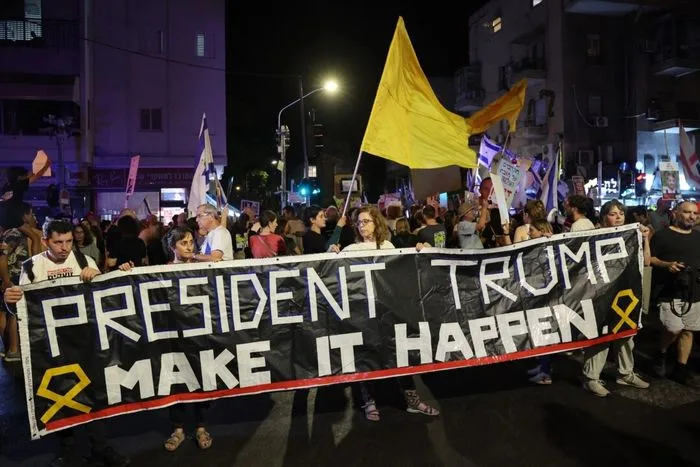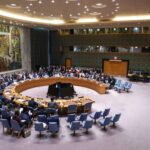By Guy Birchall
Leaders around the world have welcomed the news that a deal has been reached between Israel and the Hamas terrorist group for the release of the Israeli hostages taken two years ago.
U.S. President Donald Trump announced the deal on Wednesday, adding that hostages are likely to be released in the coming days and that Hamas will cede control of the Gaza Strip.
In exchange, Israel will pull its military forces back to an agreed-upon line.
The news was greeted by various nations as a first step in ending the Israel–Hamas conflict, which has raged since Hamas attacked Israel on Oct. 7, 2023.
French President Emmanuel Macron was among European leaders to welcome the agreement on Thursday, adding that France would continue talks to seek a political solution.
“This agreement must mark the end of the war and the beginning of a political solution based on the two-state solution,” Macron said on X.
German Chancellor Friedrich Merz called the deal “encouraging,” saying on X that the first steps “offer new hope—for the hostages and their families, for the people in Gaza, and for the entire region.”
“We call on all parties to keep their promises, end the war, and pave the way for lasting peace. Germany will continue to firmly support this process,” he said.
British Prime Minister Keir Starmer also welcomed the deal in a statement posted to X, calling it “a moment of profound relief that will be felt all around the world.”
“This agreement must now be implemented in full, without delay, and accompanied by the immediate lifting of all restrictions on life-saving humanitarian aid to Gaza,” he added.
European Commission President Ursula von der Leyen commended the efforts of the United States, Qatar, Egypt, and Turkey to bring the deal about, and said the European Union stood ready to support the delivery of aid and the reconstruction of Gaza, in a post on X.
“Today’s opportunity should be seized,” she said. “It’s the opportunity to forge a credible political path toward lasting peace and security. A path firmly anchored in the two-state solution.”
Von der Leyen’s sentiments were echoed by U.N. Secretary-General António Guterres in a statement posted across his social media channels.
“I urge all stakeholders to seize this momentous opportunity to establish a credible political path forward towards ending the occupation, recognizing the right to self-determination of the Palestinian people, and achieving a two-state solution that enables Israelis & Palestinians to live in peace & security,” he said.
Countries in the region also cheered the news, with Turkish President Recep Tayyip Erdogan saying on X that he was “greatly pleased” that the deal, brokered in Sharm el-Sheikh, Egypt, had resulted in a cease-fire.
Erdogan thanked Trump for demonstrating the political will to broker the cease-fire.
However, he said that Turkey would “continue our struggle until a Palestinian state is established, based on the 1967 borders, with East Jerusalem as its capital, independent, sovereign, and possessing territorial integrity.”
Arab nations Saudi Arabia, Egypt, and Jordan, also praised the move, while further afield, Australia, Canada, Russia, and India, too, welcomed the deal.
The Israeli government is set to meet on Thursday to approve the agreement.
Israeli Prime Minister Benjamin Netanyahu’s office said that a cease-fire will not come into effect until the deal is ratified by the Knesset, Israel’s parliament.
According to the deal, if both sides agree to this proposal, Israeli forces will withdraw to the agreed-upon line to prepare for a hostage release.
During this time, all military operations, including aerial and artillery bombardment, will be suspended, and battle lines will remain frozen until conditions are met for the complete staged withdrawal.
Within 72 hours of the Israeli government approving the deal, all hostages, alive and deceased, will be returned. During a Wednesday evening interview with Fox News’ Sean Hannity, Trump said he expects the hostages to be released sometime on Monday.
Still yet to be hammered out are plans to govern Gaza after the war, and the ultimate fate of Hamas, which has rejected Israel’s demands that it give up its weapons.
Reuters contributed to this report.






